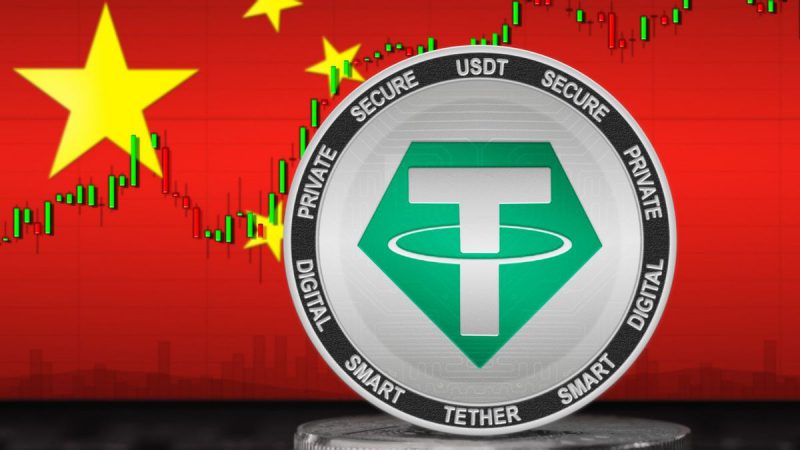China’s Supreme People’s Procuratorate has warned against using the Tether (USDT) stablecoin for currency exchange. According to Chinese authorities, using USDT to exchange local currency for a foreign one is illegal.
China’s Supreme People’s Procuratorate released a joint statement with the State Administration of Foreign Exchange (SAFE) on Dec. 27. The document calls for stricter measures against using Tether (USDT). The document says that using USDT to convert yuan into a foreign currency is illegal. Moreover, the agencies have called on local branches to “punish fraudulent foreign exchange purchases, illegal foreign exchange transactions and other foreign exchange-related illegal and criminal activities.”
Also Read: BRICS: China’s Yuan Now 4th Most Used Global Currency
Furthermore, authorities have also said indirect involvement, like technical support or exchange services, is also illegal.
Are people being punished for using Tether in China?


One Chinese citizen, Zhao Dong, was found to have facilitated crypto and local currency trading. Dong is the founder of the crypto trading desk RenrenBit. Dong was fined $322,000 and sent to prison for seven years. The RenrenBit founder was convicted of using United Arab Emirates (UAE) dirhams to buy Tether (USDT) and reselling it in mainland China for Chinese yuan.
Another citizen was sent to prison for nine months for purchasing $13,067 worth of Tether (USDT) in August 2023.
Also Read: Tether’s Bitcoin Holdings Reach a Profit of $1,100,000,000
China placed a blanket ban on cryptocurrencies over two years ago. Moreover, the country also banned crypto-related activities, such as trading and mining. However, despite the ban, stablecoins like USDT remained popular in the country. In 2022, the Chaoyang District People’s Court ruled that stablecoins cannot be used for salary payments. Nonetheless, as of October 2022, China continued to be a strong crypto market, albeit significantly smaller than before.
Moreover, China is one of the leading countries in the realm of CBDCs (Central Bank Digital Currency). The country has made significant developments in the adoption of a digital currency, with many districts using it for day-to-day expenses, such as public transport.





